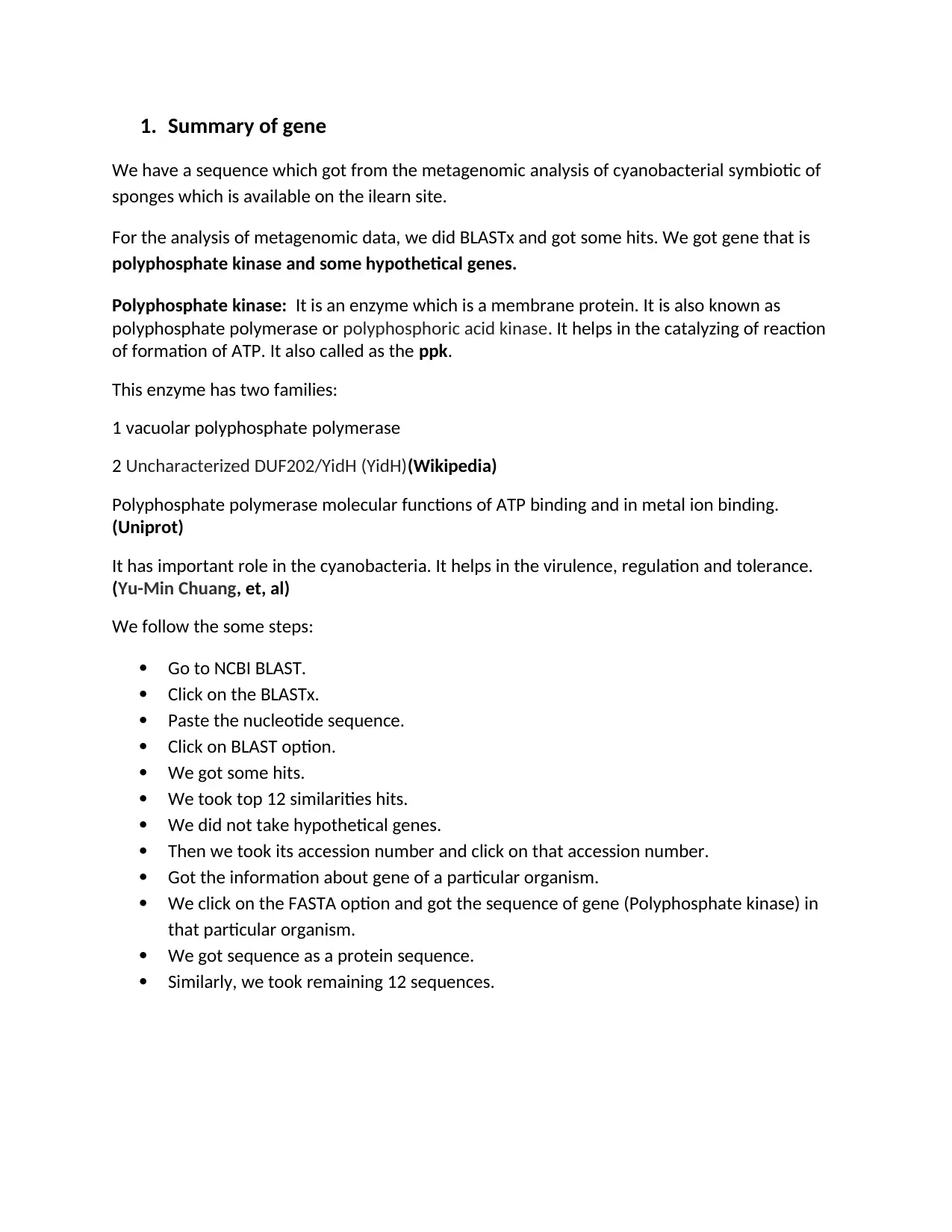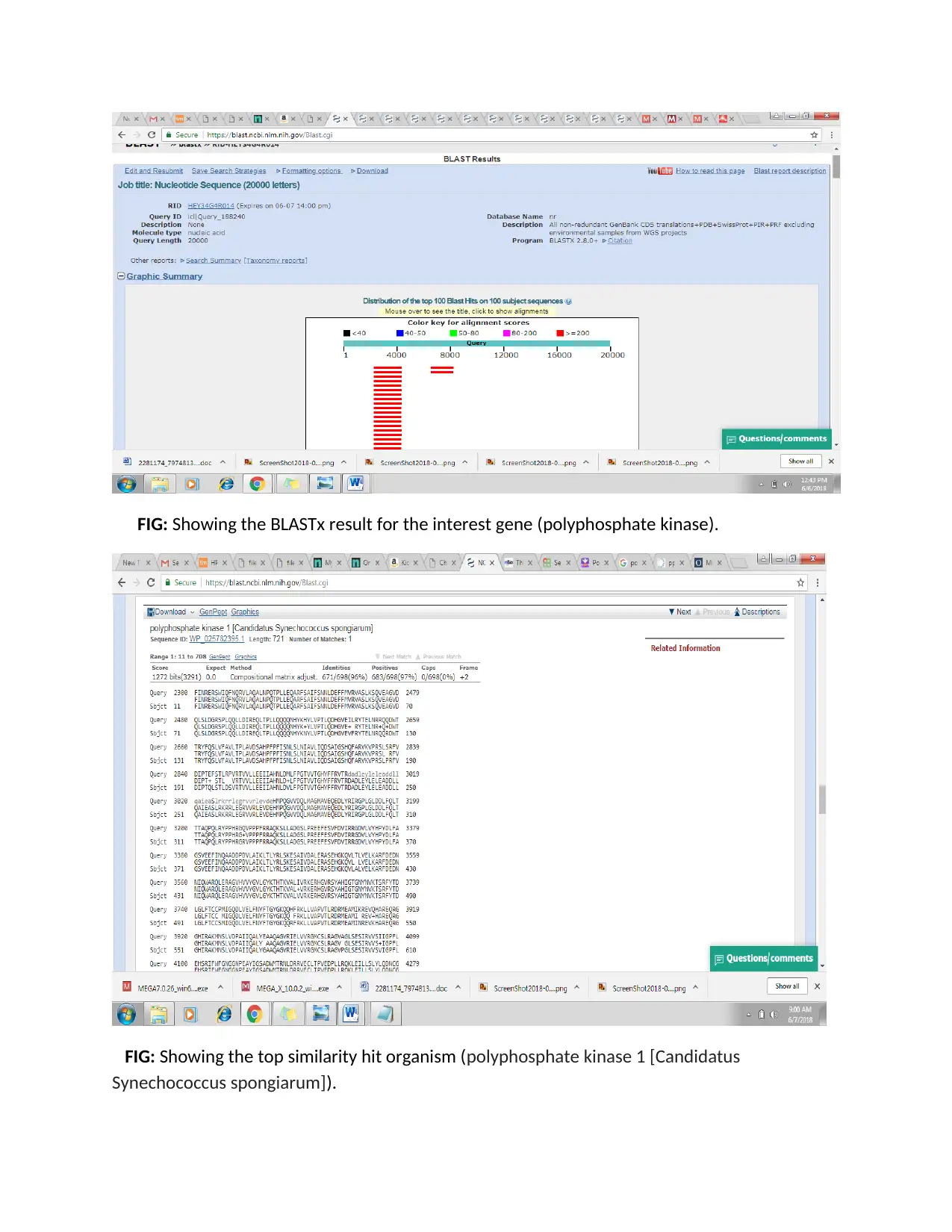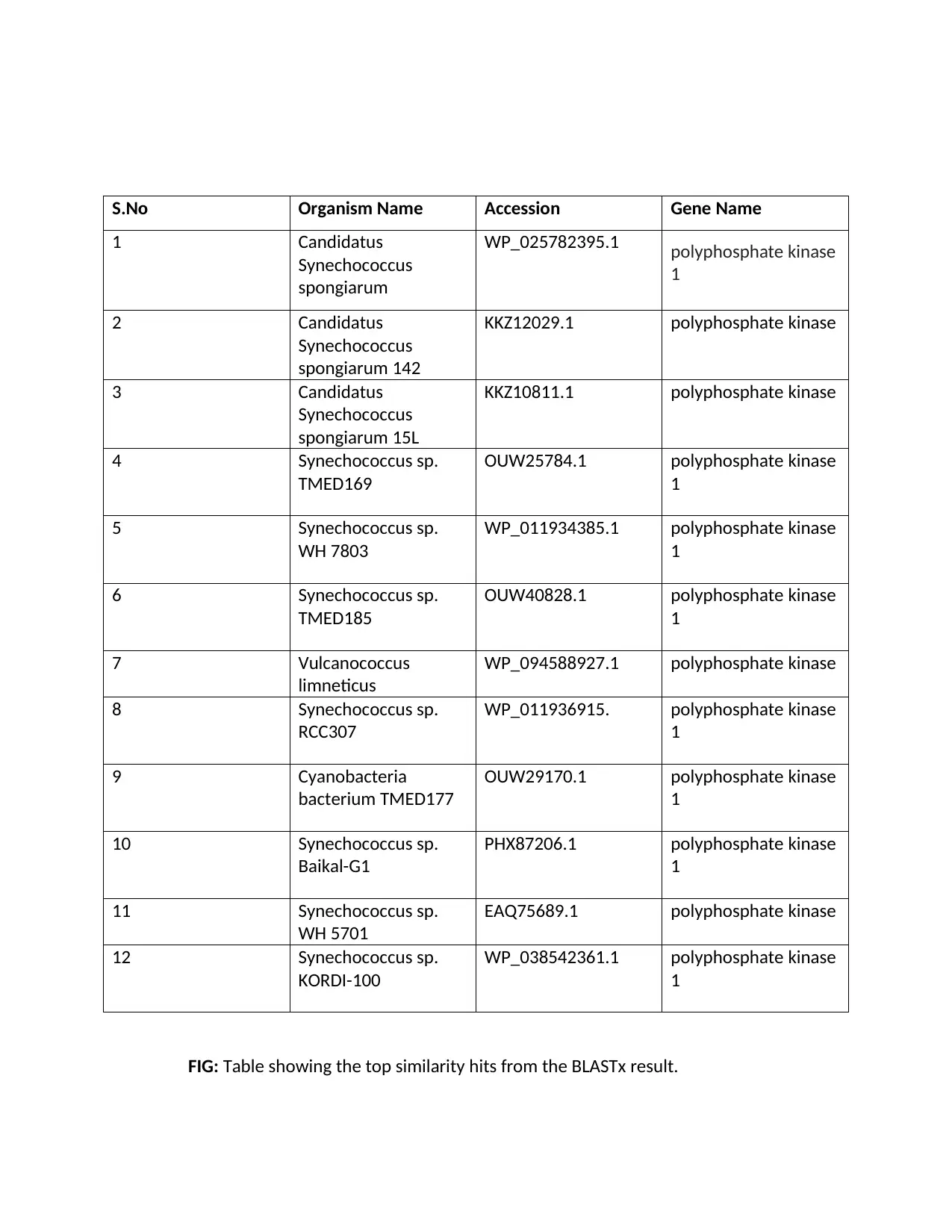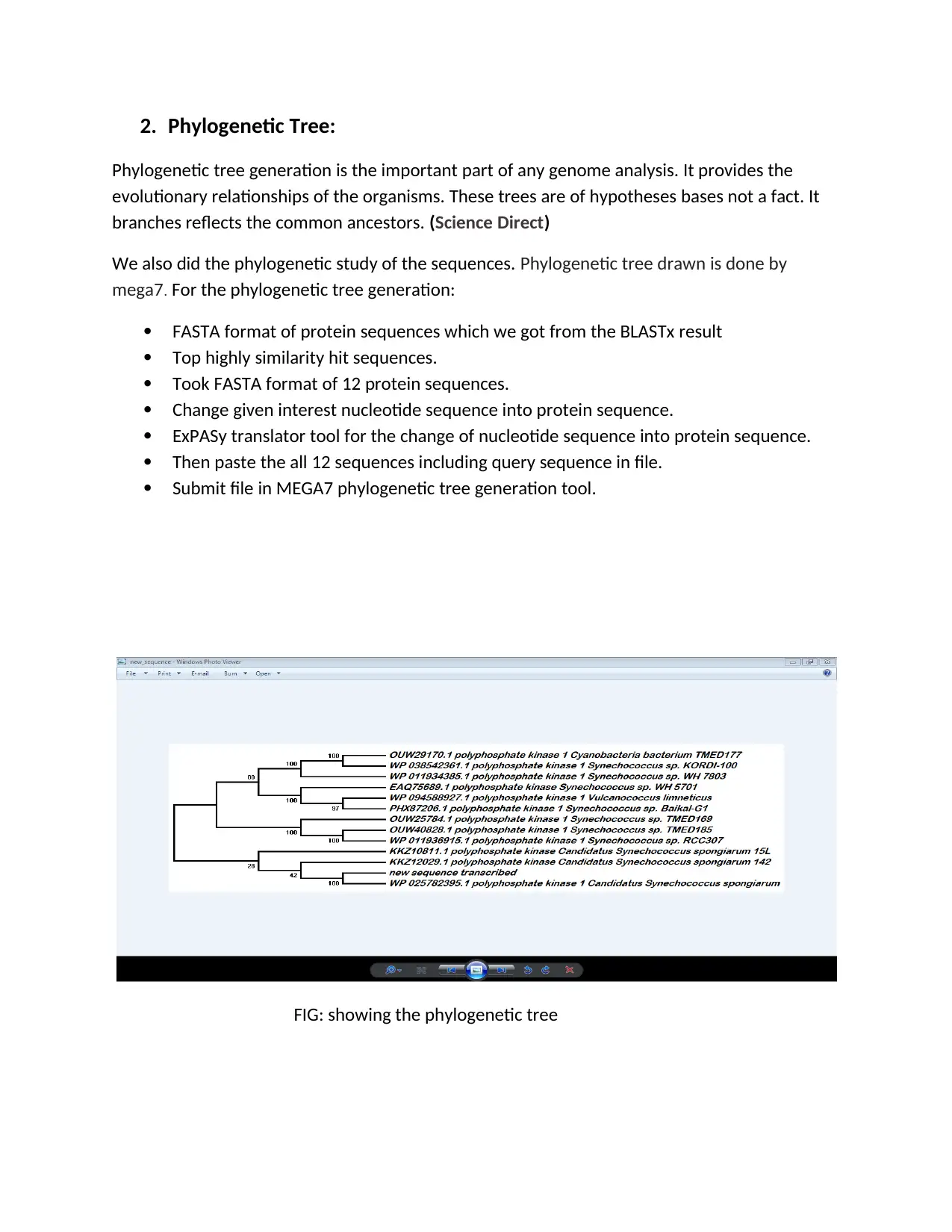Metagenomic Analysis and Phylogenetic Tree of ppk Gene Report
VerifiedAdded on 2023/06/11
|6
|663
|408
Report
AI Summary
This report summarizes the metagenomic analysis of a sequence obtained from cyanobacterial symbionts of sponges, focusing on the polyphosphate kinase (ppk) gene. The analysis involved BLASTx searches, revealing similarities to polyphosphate kinases in various organisms. The function of polyphosphate kinase, its role in ATP formation, and its importance in cyanobacteria for virulence, regulation, and tolerance are discussed. The methodology included using NCBI BLAST, identifying top similarity hits, and retrieving gene information and protein sequences. A phylogenetic tree was generated using MEGA7 to illustrate the evolutionary relationships of the identified sequences, using protein sequences obtained from BLASTx results and a translated query sequence. References to UniProt, NCBI, Wikipedia, Science Direct, ExPASy Translator, and the MEGA tool are provided.
1 out of 6







![[object Object]](/_next/static/media/star-bottom.7253800d.svg)